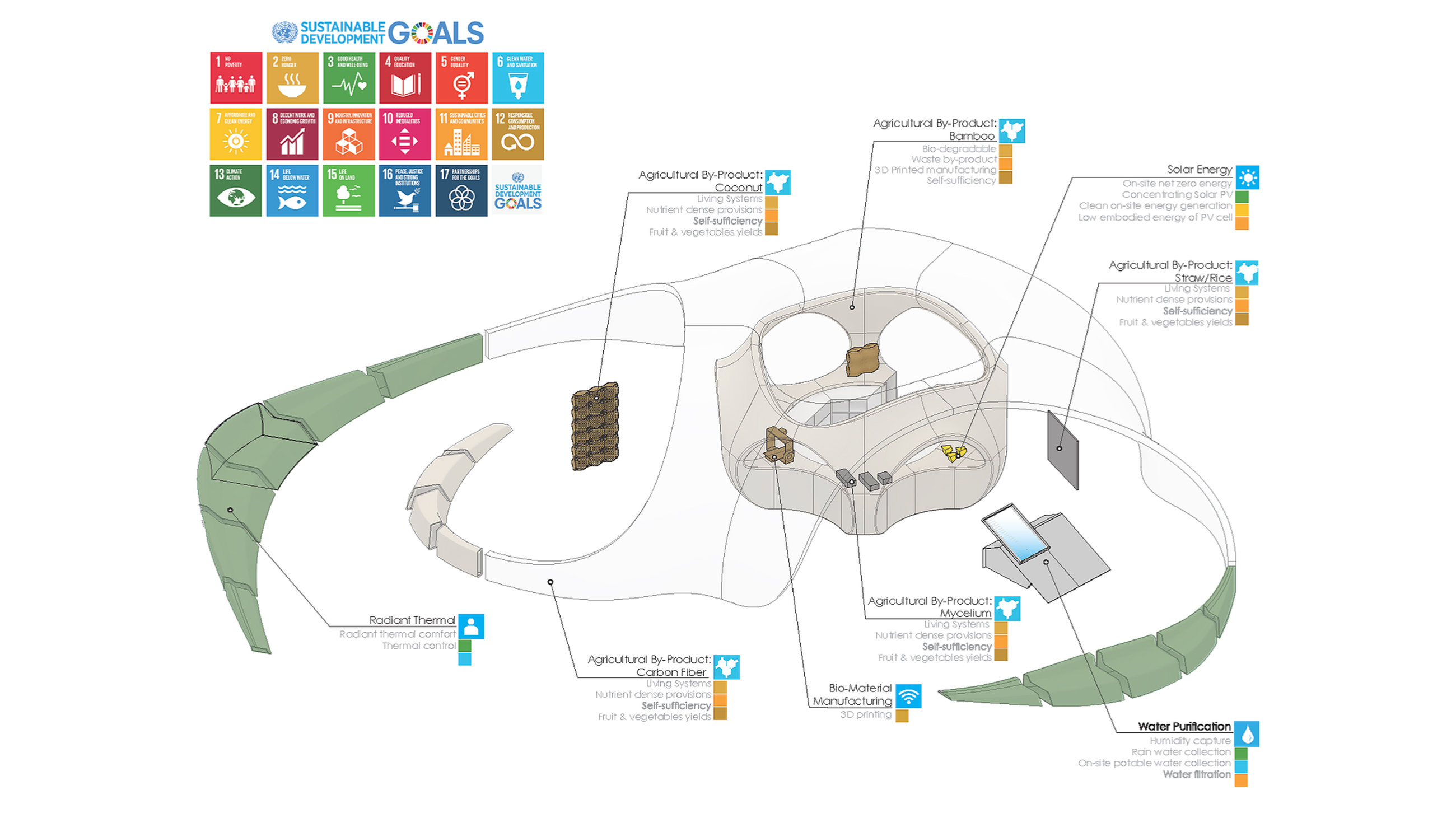Anna Dyson: The resiliency of architecture as propagator of crisis
To push forward our collective task of understanding and shifting ecosystemic behaviors, a substantial architectural research discipline must focus on integration across specialized silos.
December 3, 2019
7:00 p.m.

3D printed pavilion Ecosystem of Systems, by the Yale Center for Ecosystems in Architecture with SHoP Architects, Oak Ridge National Labs, Ecovative and Willow Technologies, exhibited at the United Nations Environment Assembly 4 in Nairobi, Kenya, March 2019.
The climate emergency demands that the ways we build, and think about building, change radically. But how? We are in a rapidly evolving, paradoxical context of worsening scientific indicators, sweeping and contradictory policy proposals from different points on the political spectrum, and, simultaneously, increasing climate change-instigated action at the scale of cities and regions.
What, then, should designers do, and how can they do it? How do the practice, culture, and pedagogy of architecture and landscape architecture need to shift?
In this series of lectures and discussions, leading practitioners and educators describe the urgent need for change and sketch the outlines of new ways of thinking and acting as architects and landscape architects. On each evening, respondents will draw out the implications of the ideas presented and offer suggestions for implementing them at a speed and scale commensurate with the climate emergency.
Human ecosystems become resilient as the codependency between functions becomes entrenched. The built environment process is an extremely complex assembly of different stakeholders, with an ever-increasing pressure from budgetary and time constraints, which works against true integrative transformation of building practices across scales. The necessity for architecture to join other disciplines in evolving a robust research network has never been more apparent. Yet a substantial architectural research discipline will be qualitatively different from that of other fields, as it focuses on integration across, rather than advances within, specialized silos, which makes it absolutely essential and core to our collective task of understanding and shifting ecosystemic behaviors.
Anna Dyson is the Hines Professor of Architecture at the School of Architecture and Professor of Forestry & Environmental Studies at Yale University. Dyson is also founding director of the Yale Center for Ecosystems in Architecture (CEA), connecting to other interdisciplinary labs on campus to collaborate on vigorous research, development, and deployment of novel architectural systems to take on the challenge of metabolizing energy, water, and materials within architecture in radically new ways. Dyson has been a professor of architecture at Rensselaer Polytechnic Institute, where she founded the Center for Architecture, Science and Ecology (CASE) in Manhattan with Skidmore, Owings & Merrill LLP in 2006. She holds many international patents on building systems innovations for the collection and distribution of clean energy, water, air quality, and material life cycle.
Explore
Climate change in the American mind
Anthony Leiserowitz is joined in conversation by Kate Orff, Paul Lewis, and Dale Jamieson to discuss underlying values that are reflected in our various views of climate change, and the extent to which those views are based on cultural predispositions rather than scientific data.
Albert Pope on carbon neutral neighborhoods
Albert Pope of Rice University urges us to “be in panic mode” in response to climate change.
Beneath and beyond big data: Open data
A series of case studies on open data and the process of making data public.
